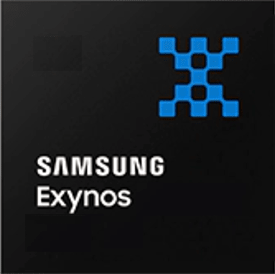
Comparez UNISOC T310 VS Samsung Exynos 7884. Which processor delivers superior performance?
In this detailed comparison, we evaluate the specifications and benchmarks of both processors to determine the best choice for your needs. We analyze their core counts, maximum frequencies, and power consumption.
UNISOC T310 boasts a maximum frequency of 2.00 GHz GHz. 4 / 4 cores that enhance multitasking capabilities.Sorti en Q2/2019, it incorporates the latest technology for optimal efficiency.
Samsung Exynos 7884 features a maximum frequency of 1.35 GHz GHz. 8 / 8 cores designed for high-performance tasks.Launched in Q2/2018, it is built to handle demanding applications.
 Raisons de considérer
Raisons de considérer Vitesse d'horloge plus élevée
Autour de 33% une meilleure vitesse d'horloge
Positions communes UNISOC T310 CPU dans des benchmarks populaires, pour comparaison avec d'autres modèles.
 Raisons de considérer
Raisons de considérer Place dans le classement général
(sur la base de plusieurs critères de référence)
Plus grand nombre de cœurs
About 2 Plus de cœurs
Positions communes Samsung Exynos 7884 CPU dans des benchmarks populaires, pour comparaison avec d'autres modèles.
 UNISOC T310
UNISOC T310

Comprehensive background on the processors being compared, detailing their series, generation, and targeted market segment.
Essential parameters including the number of cores, threads, base and turbo frequencies, and cache size. These metrics provide insight into the processor’s speed—higher values generally indicate better performance.
The integrated graphics (iGPU) do not influence the CPU performance significantly; they serve as a substitute for a dedicated graphics card in the absence of one or are utilized in mobile devices.
This section details the built-in codecs used for encoding and decoding media content, which significantly enhance processing speed and efficiency.
Overview of the types and quantities of RAM supported by Samsung Exynos 7884 et UNISOC T310. The supported memory frequencies may vary depending on the motherboard configuration.
Analyze the TDP (Thermal Design Power) requirements of UNISOC T310 et Samsung Exynos 7884 to make an informed decision on the appropriate cooling system. Remember that TDP refers to thermal watts, not electrical watts.
Information on architecture, interfaces, and additional instructions supported by UNISOC T310 et Samsung Exynos 7884, including virtual machine technologies and fabrication processes.
By analyzing the results from various benchmarks, you can gain a clearer understanding of the performance differences between UNISOC T310 et Samsung Exynos 7884.
Compare the synthetic benchmark scores and make an informed decision on the best processor for your needs!